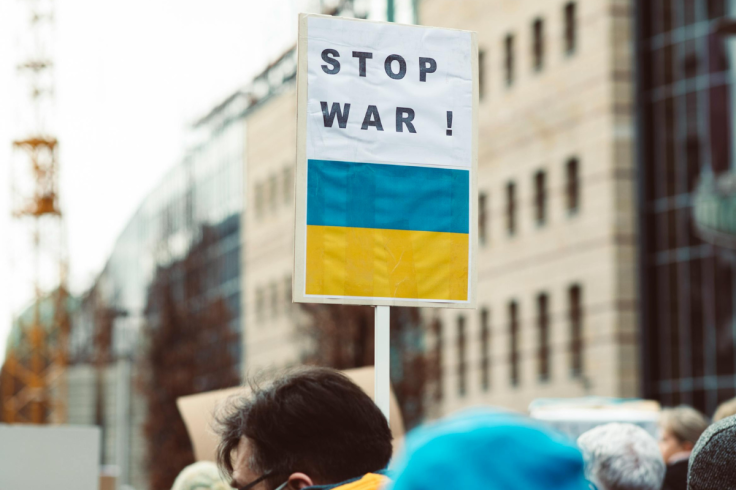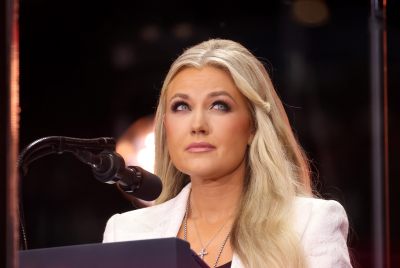Trump Delays Sanctions As Putin Misses Ceasefire Deadline
Trump called Putin 'absolutely crazy' for the attacks but stopped short of punitive measures, hoping to coax Russia to negotiate

On 28 May 2025, President Donald Trump signalled a shift in his approach to Russia, opting to hold off on new sanctions as he waits for Vladimir Putin to respond to ceasefire talks in Ukraine.
This move, reported by The Wall Street Journal, marks a departure from Trump's earlier threats of harsh financial penalties, raising questions about his strategy to end the Russia-Ukraine war, now in its fourth year.
With Russian airstrikes intensifying and peace talks faltering, Trump's decision has sparked debate over whether he's giving Putin too much leeway, or playing a long game for diplomacy.
Press for Ceasefire Diplomacy
Trump's latest stance comes after a two-hour phone call with Putin on 20 May 2025, where the Russian leader promised a 'memorandum of peace' outlining ceasefire terms.
Despite Putin's failure to deliver this document, Trump has chosen to keep diplomatic channels open rather than impose new sanctions. 'I'm giving him a little time,' Trump said, expressing frustration but avoiding immediate action, according to CNN.
This follows Russia's largest aerial assault on Ukraine, with 367 drones and missiles killing at least 12, including three children, in Zhytomyr on 25 May 2025.
Trump called Putin 'absolutely crazy' for the attacks but stopped short of punitive measures, hoping to coax Russia to the negotiating table.
X posts reflect divided sentiment, with users like @J_J_Russo noting Trump's restraint to preserve talks, while @jeffjarvis accuses him of being 'Putin's puppet'.
Balance Economic Leverage and Risks
The decision to delay sanctions has economic implications. Russia's war machine relies heavily on oil and gas exports, earning £75 billion ($101 billion) annually, per Reuters.
New sanctions targeting these sectors or secondary measures against countries like China and India could disrupt Russia's finances but risk spiking global energy prices.
Trump's hesitation may stem from domestic concerns, US petrol prices, now lower than during Biden's term, could rise, hitting voters hard. 'Sanctions could push Russia away from talks,' Secretary of State Marco Rubio told the Senate, defending Trump's approach.
Yet, a bipartisan Senate bill, backed by 80 senators and led by Trump ally Lindsey Graham, pushes for 'crippling' tariffs on Russian energy buyers, showing growing Congressional impatience.
Navigate European and Ukrainian Frustrations
European allies, already boosting their own sanctions, are frustrated by Trump's reluctance.
French President Emmanuel Macron urged Trump to translate his anger into action, while Polish Foreign Minister Radosław Sikorski warned that Europe's £14.4 trillion ($19.3 trillion) economy could outmuscle Russia's £800 billion ($1.07 trillion) if united.
Ukraine's President Volodymyr Zelenskyy, who agreed to a US-proposed 30-day ceasefire, accused Putin of 'playing games with diplomacy'.
The BBC reports Zelenskyy's plea for stronger US pressure, arguing that only sanctions targeting Russia's banking and energy sectors can force Putin to negotiate seriously. Without US leadership, Europe fears a fractured NATO and a prolonged war.
Trump's High-Stakes Waiting Game
Trump's decision to hold off sanctions bets on Putin's goodwill, a risky move given Russia's relentless attacks. By prioritizing talks over immediate pressure, he's dangling economic carrots like trade deals while keeping the stick of sanctions in reserve.
But with Putin showing no signs of backing down, Trump's patience could weaken US leverage and alienate allies.
The world watches as Trump navigates this tightrope, diplomacy may be his goal, but without decisive action, America's influence hangs in the balance.
© Copyright IBTimes 2025. All rights reserved.




















